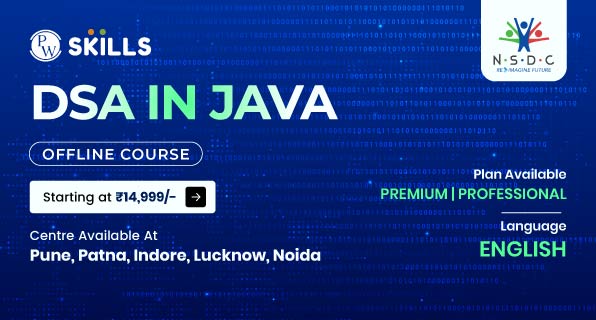In today’s fast-paced tech world, the role of a developer in Java is more crucial than ever. If you’re passionate about coding and problem-solving, the developer in Java job is a perfect fit for you. This article takes you into the core aspects of this exciting developer in Java job, from the daily responsibilities to the essential skills required.
If you’re a fresher just starting your journey, understanding the Developer in Java job role can open up a world of opportunities for you.
What Is Developer In Java?
A Developer in Java is a skilled programmer who is a specialist in using the Java programming language to create applications and software solutions. Java Developers are essential in various industries, from web development to finance.
They work on everything from developing new software features to fixing bugs and ensuring applications run smoothly. With a strong foundation in coding and problem-solving, Developer in Java plays a crucial role in shaping the technology we use every day.
Developer In Java – Key Responsibilities
A Developer in Java has a diverse range of responsibilities that keep their work dynamic and crucial. Key tasks performed in the day-to-day life of a Java developer include-
- Design and Develop: Create efficient, scalable, and testable Java-based applications to meet user requirements.
- Maintenance: Regularly update and maintain existing applications to ensure good performance and functionality.
- Troubleshooting: Identify potential bugs or issues and fix them accordingly, ensuring smooth operation of applications.
- Collaboration: Work closely with different teams, including designers, testers, and project managers, to deliver high-quality software solutions.
- Stay Updated: Keep updated on the latest industry trends and technologies to use them in modern projects.
- Code Reviews: Participate in code reviews, offering good and improving feedback to fellow coders to enhance code quality.
- Documentation: Write and maintain clear documentation for software development processes and applications.
- Testing: Conduct thorough testing of applications to identify potential bugs and issues before deployment.
Skills Needed To Become A Developer In Java
Becoming a successful Java Developer requires a blend of technical knowledge and soft skills. By gaining these below-written key skills, you’ll be well-prepared to start your journey as a successful Developer In Java programming language.
- Strong Understanding of Java: Master the core concepts of Java, such as object-oriented programming, inheritance, polymorphism, and exception handling. These fundamentals are the building blocks of Java development.
- Proficiency with Development Tools: Having proficiency in using Integrated Development Environments (IDEs) like Eclipse is essential as these tools enhance productivity by providing features like code completion, debugging, and version control integration.
- Problem-Solving Skills: Develop the ability to tackle complex coding problems by thinking logically to provide efficient solutions. This skill is crucial for finding the best optimal solution available.
- Good Communication Skills: Clear communication helps in understanding requirements and sharing ideas with others. Being a Developer requires collaborating effectively with team members, including designers, project managers, and other developers.
- Database Knowledge: Learn how to work with databases like SQL. Understanding how to store, retrieve, and manage data efficiently is essential for making a good and responsive Java application.
- Familiarity with Web Technologies: Basic knowledge of HTML, CSS, and JavaScript is beneficial, especially if you’re working on web-based applications. This helps in creating dynamic and user-friendly interfaces.
- Knowledge of Frameworks: Having a Familiarity with popular Java frameworks like Spring and Hibernate is a must as these frameworks simplify the development process and are widely used in the industry.
- Continuous Learning: The tech world is growing rapidly introducing something new daily to learn, and continuous learning is key to stay with the trend.
Key Qualifications For Java Developers
To become a Developer in Java, a strong educational background is essential. Most of the people start with a bachelor’s degree in computer science, software engineering, or a related field. Focusing on Java during your studies is crucial, as hands-on experience with the language is essential. Understanding core computer science principles like data structures and algorithms and object-oriented programming are also important.
Apart from this having a dedicated certification course in Java programming language will also help you in gaining relevant experience and make you stand out in the recruiter’s eye.
Developer In Java – Job Salaries
As we all know there is a huge demand for a developer in Java in today’s tech world, but the common question that arises is how much salary do Java developers make?
Let’s read the article further to find the exact answer to this question, The salary of a developer in Java generally varies depending on several factors like- geographical location, company working in, year of experience, and much more.
According to the recent report published on Indeed, an entry-level Java developer having less than one year of experience can expect to earn an average annual salary of ₹583,835, and a Java Developer having 1-3 years of experience generally earns an average annual salary of ₹682,657. Mid-level developers with 5-9 years of experience are paid an average annual salary of ₹872,366, while a Senior Java Developers with more than 10 years of experience basically earns ₹1,396,371 yearly. Let us understand this more clearly with the help of a table given below.
| Developer In Java Average Salary | |
| Years Of Experience | Average Annual Salary |
| Fresher | 5 Lakhs Per Annum |
| 1-3 Years | 6.5 Lakhs Per Annum |
| 5-9 Years | 8.5 Lakhs Per Annum |
| 10+ Years | 13.9 Lakhs Per Annum |
Developer In Java Roadmap
Java is one of the most widely used programming languages in the world, known for its strength, scalability, and reliability. Whether you’re looking to develop web applications, mobile apps, or large-scale enterprise systems, mastering Java can open many doors in your career. Here’s a simple roadmap to guide you on your journey to becoming a proficient Java developer:
1. Learn the Basics
Begin your journey by understanding what Java is and why it’s so popular in the programming world. Setting up your development environment is crucial to start with your journey, install the Java Development Kit and choose an IDE like IntelliJ IDEA or Eclipse to write and test your code effectively. After that familiarize yourself with the basic concepts of programming such as variables, data types, loops, and conditional statements.
2. Master Core Java
After getting familiar with basic Java concepts and using them in various codes, it’s time to dive deeper into core Java concepts, starting with Object-Oriented Programming (OOP). Learn how to use classes and objects, and understand the principles of inheritance, polymorphism, encapsulation, and abstraction. These are fundamental concepts that make Java a powerful and flexible language. Additionally, get a good understanding of arrays, strings, lists, and maps, and how to handle exceptions to write strong, reliable, and efficient Java programs.
3. Practice Coding
Practice is key to becoming proficient in Java. Start by writing simple programs that implement the concepts you’ve learned, such as a basic calculator or a program that sorts numbers. Use online platforms like HackerRank, LeetCode, and Codecademy to find coding exercises and challenges that can help to implement your skills and provide you with a variety of problems to solve.
4. Explore Advanced Java
As you become more comfortable with the basics, start exploring advanced Java topics. Familiarize yourself with popular libraries and frameworks such as Apache and Google Guava, which offer useful utilities and tools. For graphical user interface (GUI) development, look into JavaFX. Additionally, learn about multithreading and concurrency to understand how Java handles multiple tasks simultaneously.
5. Build Projects
Apply the knowledge that you have learned till now, by building small projects, such as a calculator, a to-do list app, or a simple game. These projects will help you put your learning into practical implementation and build your confidence. To gain real-world experience, consider contributing to open-source projects on platforms like GitHub.
6. Learn About Databases
Understanding databases is crucial for a Java developer. Start by learning the basics of SQL, which is the language used to communicate with databases. Learn how to create, read, update, and delete data. Then, move on to Java Database Connectivity (JDBC), which allows you to connect your Java applications to databases. With JDBC, you can execute SQL queries from your Java code and manage data efficiently.
7. Understand Web Development
Web development is a valuable skill for Java developers. Learn about Java Servlets and JavaServer Pages (JSP), which are used to create dynamic web content. Servlets handle the server-side processing, while JSP is used for creating the user interface. To build more complex and scalable web applications, explore the Spring Framework. Spring provides an infrastructure for developing strong and reliable web applications.
8. Study Best Practices
To become a professional Java developer, it’s important to follow best optimal methods. Learn how to write clean and readable code that is easy to maintain and understand. Adopting good coding practices early will make your code more efficient and less prone to errors.
9. Get Certified
Earning certifications can enhance your resume and prove your expertise to potential employers. Consider pursuing certifications like the PW Skills Java with DSA Certification Course. These certifications are recognized in the industry and can help you stand out in the job market.
10. Stay Updated
The technology field is always evolving with daily new updates knocking on the door, so it’s important to stay updated with the latest developments in Java. Read blogs, attend webinars, and join online communities to keep learning new features and practices. Continuous learning will ensure that your skills remain relevant to the industry trends.
Become A Developer In Java With PW Skills
Join our PW Skills Comprehensive Java Courseand start your journey of becoming a proficient developer in Java. This four-month program offers 100+ hours of learning, helping you to master essential skills such as Java programming, data structures, problem-solving, and code optimization.
Additionally, you will be glad to know that Our course is specially designed by experts to enhance your learning experience with daily practice exercises, regular doubt-clearing sessions, flexible recorded lectures, and daily quizzes. Upon completing the course, you’ll also receive an industry-recognized certification which will add a lot to your resume.
Join us and transform your passion for coding into a rewarding career with PW Skills!
Developer In Java FAQs
What skills are essential for a Java developer?
Proficiency in Java SE and Java EE
Knowledge of OOP concepts
Familiarity with frameworks like Spring and Hibernate
Database and SQL skills
Experience with Git, Maven, and IDEs like IntelliJ or Eclipse
What are the main responsibilities of a Java developer?
Design, implement, and maintain Java applications
Conduct software analysis and debugging
Participate in code reviews
Write efficient, testable code
Collaborate with cross-functional teams
What are some common challenges Java developers face?
Debugging complex issues
Managing dependencies
Ensuring performance and scalability
Integrating with legacy systems
Handling concurrency



